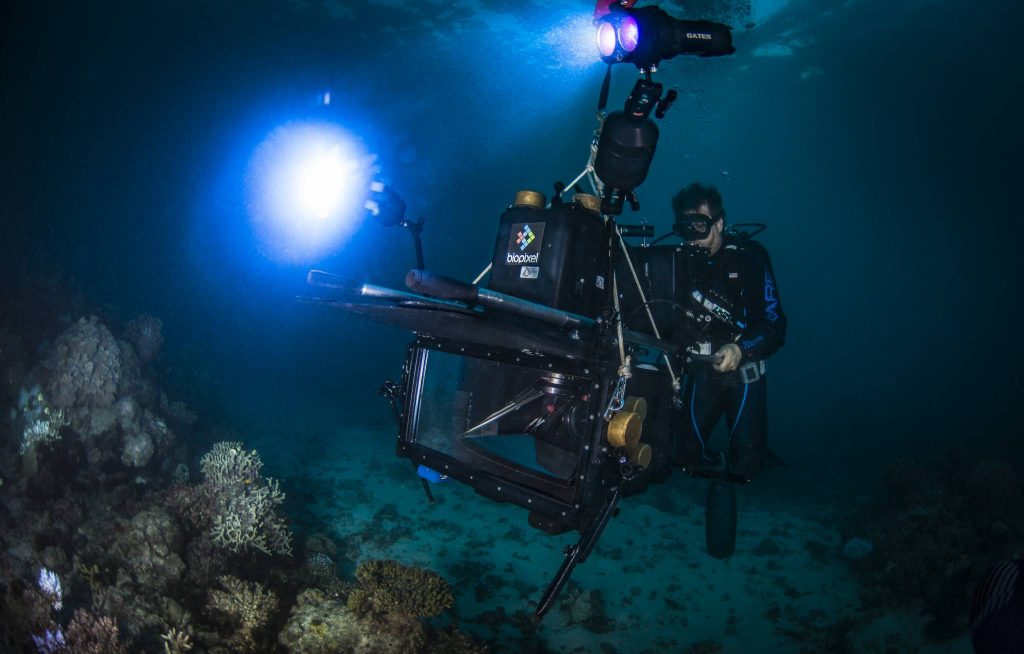eco-screen

Looking to make your production or film festival more eco-friendly?
SCREEN QUEENSLAND ECO SCREEN DEPARTMENT TIPS
ECO SCREEN encourages partnership with green initiatives already being implemented in the community and provides tools and information for companies and individuals wishing to become more environmentally responsible in carrying out the business of motion picture production.
Already known pro environmental friendly industry sector, Queensland’s motion picture production community understands that a light footprint on our environment means a longer life for our valued resources and a longer welcome within Queensland’s communities. The production industry also understands there is more that can be done to make its activities green and Eco Screen captures a grassroots movement within the industry to do just that with information on best practices by department and a list of environmentally responsible service and supply companies.
ALL DEPARTMENTS:
There are many basic things that everyone can do, no matter in what department they work.
- Ensure the set is equipped with recycling facilities
- Ensure all crew members are aware of environmental standards for the production
- Where possible minimise the use of disposable items
- Buy environmentally friendly products with recycled content
- Use environmentally responsible cleaning products on location
- If composting is available, provide food waste bins for use on set
- Provide facilities for the disposal of chewing gum and provide butt buckets or personal/pocket ashtrays for cast and crew
- Identify potential environmental impacts when assessing film locations for health and safety risks
- Include environmental protection control measures in call sheets to raise awareness among cast and crew
- Use spill kits and storm water drain covers as part of the standard equipment for working on location
- Encouraging carpooling in departments and in the production office.
ART DEPT, SET DEC, CONSTRUCTION:
From script to vision, from design to build, from shooting and wrap; planning is everything when sourcing materials, building sets, and diverting waste from landfills.
- Sell or donate unwanted set materials to local theatres, high schools, acting schools or other productions before opting for disposal
- Support charities that are willing to pick up, recycle and reuse materials
- Where appropriate select paint and products with environmentally friendly labels
- Dispose of paints and other hazardous materials in a responsible manner, e.g. returning paints to retailers, storing paints for future use
- Do not allow paint or residuals from washing paint brushes to enter storm drains
- Use recycled wood from sustainable forests
- Rent or lease larger items such as furniture and computers as an alternative to purchasing
CAMERA & SOUND DEPT:
- Unplug video players, monitors and other similar equipment
- When purchasing or renting equipment ask about energy-efficient alternatives or enquire about more efficient ways to use the equipment and ask your supplier about recycling or other ecofriendly options for expendable items.
CATERING & CRAFT SERVICE:
- Encourage the use of reusable cutlery, plates and cups rather than using disposable items
- Buy organic, locally grown food and minimize meat options to help offset greenhouse gas emissions and other pollutants associated with the transportation of food
- Apply fair trade principles when selecting imported food products e.g. coffee, tea, chocolate and bananas
- Ensure that recycling facilities are available on location, for plastic, glass, cans and metals
- Use lunch locations as places to post and inform cast and crew of good environmental practices
- Encourage the use of personal travel mugs and water bottles to discourage the consumption of disposable waxed paper cups
- Dispose of liquid wastes at approved disposal sites; DO NOT use storm drains
COSTUME:
- Purchase second-hand or recycled clothing and accessories when appropriate
- Support Australian and Queensland designers with environmental credentials
- Avoid the use of garments and accessories made from endangered species
- Repair and alter garments rather than buying new
- Avoid clothes requiring Dry Cleaning processes
- Prefer dry-cleaners who use energy-efficient machines
- Re-use coat hangers and plastic garment covers
- Store and recycle garments/costumes when possible
GRIPS & ELECTRICS:
- Use grid based power (when possible) to avoid emissions from generators
- Replace flickering, dim and burned out lamps
- When replacing light bulbs, replace with lower-wattage, longer life, cool lamps or energy-efficient alternatives such as fluorescents
- Use dimmers to rest lights between setups rather than switching lights on and off
- Encourage the use of fluorescent lights for work areas on location
- Use environmentally considerate textiles on frames instead of poly based materials for bounce and filtration
- Recycle colour gels so that they can be used in future production
HAIR & MAKE UP:
- Favour make-up, hair and cosmetic brands that use less packaging
- Where possible select make-up, hair and personal care brands committed to avoiding animal testing and the use of ingredients that cause adverse health effects e.g. products that are cruelty-free and meet the criteria of the Compact for Safe Cosmetics
- Use refills to avoid disposing of non-recyclable make-up containers
- Investigate organic alternatives for make-up, hair care and personal hygiene products
- Have recycling bins readily available to make-up staff
- Avoid the use of aerosols containing ozone-depleting substances
- Where possible purchase in bulk to avoid unnecessary travel
POST PRODUCTION & VISUAL EFFECTS:
- Make use of the energy saving features for equipment and computers
- Where compatible with clients, distribute projects and demonstration reels online or via other digital means
- In the office environment, apply purchasing, energy efficiency, water conservation and waste reduction practices
STUNTS & SPECIAL EFFECTS:
The integration of physical and visual effects ensures that impacts to the environment are lessened.
- Reduce environmental impacts by using water based smoke fluids
- Where possible, use propane rather than liquid fuel for fire effects
- Recycle scrap steel and aluminum
PRODUCTION OFFICE
Many of the activities involved in motion picture production are office-based.
This can include the actual production office as well as satellite offices such as Post Production, Construction and Corporate Offices. As with any business, there are environmental impacts associated with day-to-day office activities including paper use, energy and water use, waste generation and transportation.
It is up to each and every one of us to change our habits to promote a green environment. By practicing the 3 R’s – reduce, reuse and recycle, we can minimize the environmental impacts associated with many office-based activities.
PAPER USAGE
- TBYP – Think Before You Print – assess whether a hard copy is necessary
- Select double-sided printing by default
- Print only revised script pages
- Print scripts by demand only
- Create a recycling plan for the production office
- Ensure paper recycling bins are readily available
- Purchase recycled paper products
- Use recycled ink cartridges where available
- Investigate the use of paperless script solutions such as tablet PCs
ENERGY USAGE
- Use energy efficient lighting and lower wattage bulbs
- Maximize use of natural lighting when possible
- Turn off computers, monitors, printers and photocopiers when not in use, overnight and on weekends. If unable to switch off the entire computer, turn off the monitor and printer.
- When buying computers, monitors, printers, and photocopiers, favour models with good energy-efficiency ratings that can switch to a power-saving mode when not in use
- Use a laptop computer instead of a desktop computer
- Unplug chargers for mobile phones, cameras and other equipment when not in use
- When purchasing or renting equipment, ask about energy efficient alternatives or enquire about more efficient ways to use the equipment
- Ensure that refrigerators and freezers operate efficiently by defrosting regularly and check that they are set to the optimum temperature
WATER: HEATING, APPLIANCES, WASTEWATER
- Use energy efficient appliances (air conditioners, refrigerators, dishwashers, etc.)
- Ensure that washing machines and dishwashers are used with full loads or use economy settings
- Where possible use the cold wash setting
- Use environmentally friendly cleaning products
- Discourage staff from leaving water running
- Identify and prevent hazardous substances from entering wastewater and storm water systems
- Provide spill kits and storm water drain covers and train designated staff in their use
WASTE DISPOSAL AND RECYCLING
- Provide adequate facilities for recycling paper, glass, aluminum, plastic and cardboard
- Raise staff awareness about recycling facilities in the office and on location
- Collect organic waste and convert it to compost in a bin
- Use rechargeable batteries and dispose of batteries properly
- Monitor the amount of waste going to landfills
- Provide reusable, recyclable and/or biodegradable serving products, instead of Styrofoam and plastic products
TRANSPORTATION:
A mobile industry, working in isolated areas needs to consider all means to lessen emissions, and find new ways to move people and equipment.
- Plan to take only the trucks and technical equipment needed for the day to location
- Develop environmentally responsible leasing/rental practices for vehicles to include fuel efficiency and maintenance practices
- Use alternative fuel vehicles, e.g. hybrids, electric, ethanol or bio diesel
- Purchase the cleanest fuel available
- Monitor fuel efficiency by tracking mileage and fuel consumption
- Investigate ways of reducing unnecessary travel, such as teleconferencing
- Encourage above the line talent to share trailers in order to be eco-friendly
- Raise crew awareness of fuel-efficient driving
- Drive smoothly without harsh acceleration; speeding off the mark can use up to 60% more fuel
- Change gears efficiently – changing gears at 1500 to 2500 rpm can save up to 15% on fuel
- Avoid unnecessary idling.
- Short journeys on a cold engine use up twice as much fuel as a warm engine, producing more emissions
- Air conditioning increases fuel consumption by up to 2 litres per 100 km
- Provide incentives for crew members to car pool
OTHER LINKS >
Green Production Guide: http://www.greenproductionguide.com/
Queensland Government Department of Environment: http://www.ehp.qld.gov.au/
Warner Bros. Green Production: http://www.wbcitizenship.com/sustainability/green-production/
Sony Pictures: http://www.sonypictures.com/green/
Universal: http://www.greenisuniversal.com/
Contact our Location department for more tips and information on green initiatives within the Queensland screen community:
Phone: +61 7 3248 0500
Email: locations@screenqld.com.au
IMAGE: Biopixel film underwater in Far North Queensland




